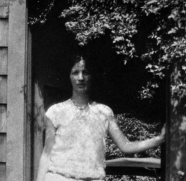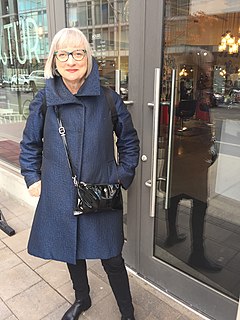A Quote by Adrienne Rich
[The poet] is endowed to speak for those who do not have the gift of language, or to see for those who - for whatever reasons - are less conscious of what they are living through. It is as though the risks of the poet's existence can be put to some use beyond her own survival.
Related Quotes
There is this tendency to think that if you could only find the magic way, then you could become a poet. "Tell me how to become a poet. Tell me what to do." . . . What makes you a poet is a gift for language, an ability to see into the heart of things, and an ability to deal with important unconscious material. When all these things come together, you're a poet. But there isn't one little gimmick that makes you a poet. There isn't any formula for it.
One of the appeals of William Carlos Williams to me is that he was many different kinds of poet. He tried out many different forms in his own way of, more or less, formlessness. He was also a poet who could be - he was a love poet, he was a poet of the natural order and he was also a political poet.
It is not possible, for a poet, writing in any language, to protect himself from the tragic elements in human life.... [ellipsis in source] Illness, old age, and death--subjects as ancient as humanity--these are the subjects that the poet must speak of very nearly from the first moment that he begins to speak.
Some feminist critics debate whether we take our meaning and sense of self from language and in that process become phallocentric ourselves, or if there is a use of language that is, or can be, feminine. Some, like myself, think that language is itself neither male nor female; it is creatively expansive enough to be of use to those who have the wit and art to wrest from it their own significance. Even the dread patriarchs have not found a way to 'own' language any more than they have found a way to 'own' earth (though many seem to believe that both are possible).
Harriet Levin [is] a shining poet in her generation.... The dynamics of her language and her vigorous voice distinguish all her poems. Levin's fearless willingness to tackle any subject combines with her subtle intelligence to produce a rare reading experience, the moving, psychologically sophisticated and intriguing work of a poet with both guts and craft
Jem seemed to look through her then, as if he were seeing something beyond her, beyond the corridor, beyond the Institute itself. "Whatever you are physically," he said, "male or female, strong or weak, ill or healthy--all those things matter less than what your heart contains. If you have the soul of a warrior, you are a warrior. All those other things, they are the glass that contains the lamp, but you are the light inside." He smiled them, seeming to have come back to himself, slightly embarrassed. "That's what I believe.
The poet is born with the capacity of arranging words in such a way that something of the quality of the graces and inspirations he has received can make itself felt to other human beings in the white spaces, so to speak, between the lines of his verse. This is a great and precious gift; but if the poet remains content with his gift, if he persists in worshipping the beauty in art and nature without going on to make himself capable, through selflessness, of apprehending Beauty as it is in the divine Ground, then he is only an idolater.
Judge: And what is your occupation in general? Brodsky: Poet, poet-translator. Judge: And who recognized you to be a poet? Who put you in the ranks of poet? Brodsky: No one. And who put me in the ranks of humanity? Judge: Did you study it?...How to be a poet? Did you attempt to finish an insitute of higher learning...where they prepare...teach Brodsky: I did not think that it is given to one by education. Judge: By what then? Brodsky: I think that it is from God.
You are not a perfect woman.You have an evil temper, you’re as blind as a mole, you’re a deplorable poet, and frankly, your French accent could use some work.” Supporting himself on his elbows, Leo took her face in his hands. “But when I put those things together with the rest of you, it makes you into the most perfectly imperfect woman I’ve ever known.
In order to create it is necessary to destroy; and the agent of destruction in society is the poet. I believe that the poet is necessarily an anarchist, and that he must oppose all organized conceptions of the State, not only those which we inherit from the past, but equally those which are imposed on people in the name of the future.






































